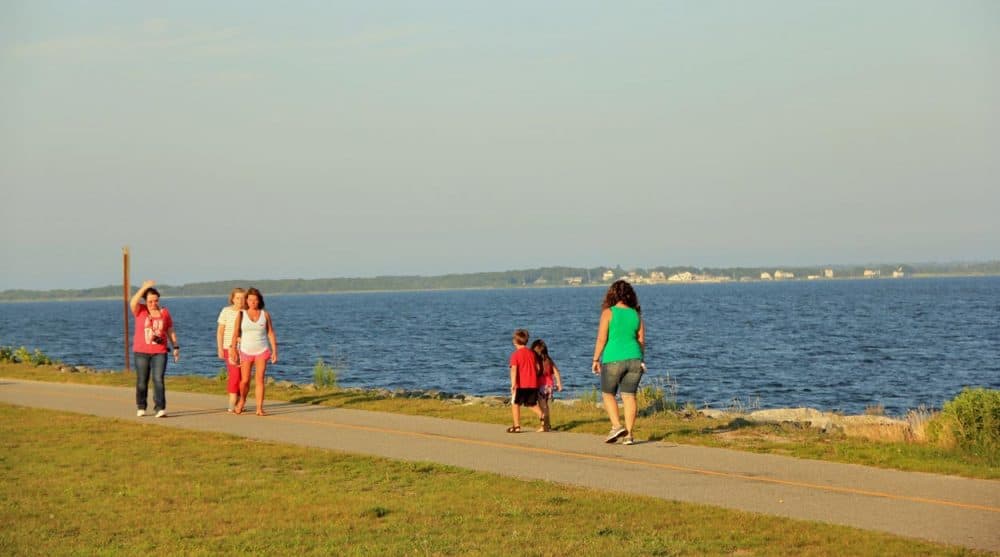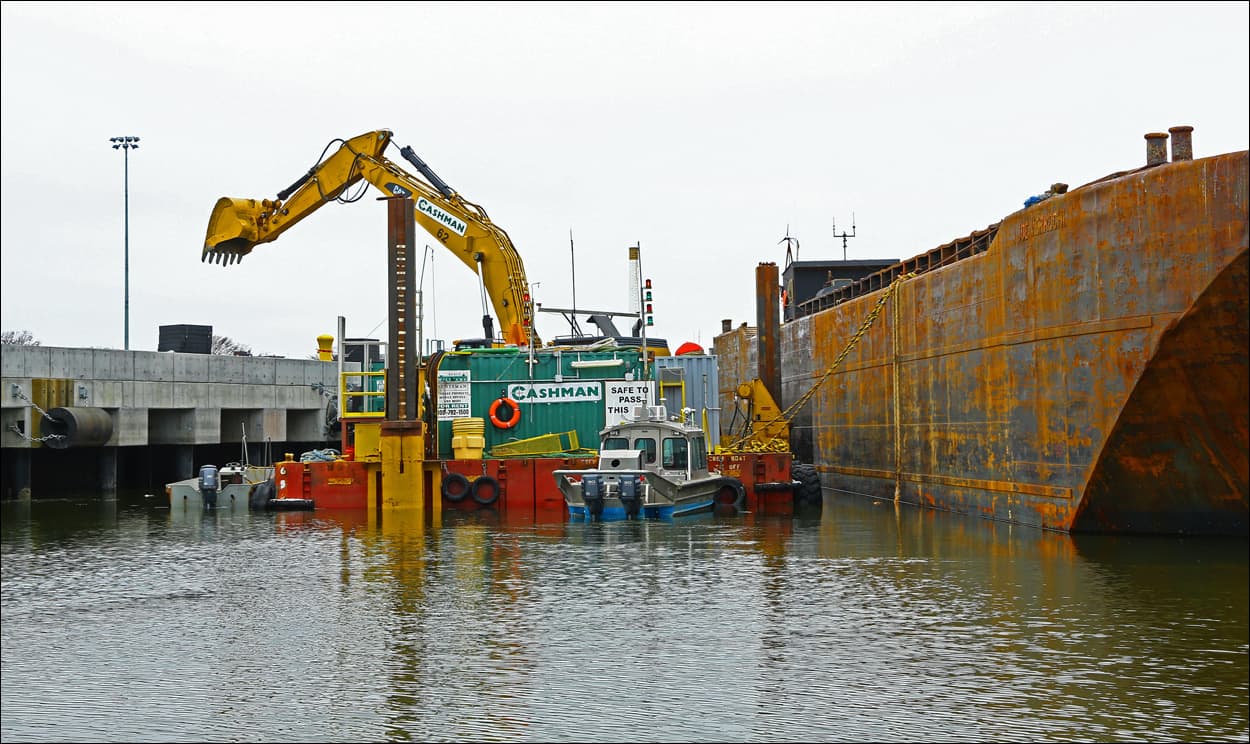Advertisement
End Of Olympic Bid Another Blow For New Bedford

The end of Boston's bid to host the 2024 Summer Olympics has effects beyond city limits.
The group organizing the bid had proposed hosting events across the state, including sailing in New Bedford. For that city, the end of the Olympic bid is just the latest in a string of major projects that have fallen through.
'An Awesome Opportunity'
New Bedford often conjures an image of struggling schools, high unemployment, and violence in the streets. But that’s only one side of the city, and some say hosting Olympic sailing events would have given New Bedford a chance to show its better face.
"The city gets a bad rap," Beth Sylvia said as she walked near Fort Taber in the city's South End. The Civil War era fort sits on a peninsula that juts into Buzzards Bay.
"Of course there are issues in New Bedford, no one’s going to deny that, but there are lots of opportunities and it's beautiful, I mean look at it right here," Sylvia said, pointing to the dozens of sailboats that could be seen from the park's vast lawn — the spot that would have hosted 10,000 Olympics spectators.
Sylvia can understand why many Bostonians opposed the bid. But in a city with almost no traffic, where officials said zero tax dollars would've been spent on the games, she says there seemed to be few downsides.
"I think I would have voted for it just because I think it’s an awesome opportunity," she said. "I have kids, and to see the Olympics in their backyard, right here in Buzzards Bay, would have been phenomenal."
Advertisement
Jack Gierhart, the executive director of U.S. Sailing, the sport's governing body, grew up in nearby Marion, an ocean-side suburb more Nantucket than New Bedford. He saw the possibility of Olympic sailing in New Bedford — he believed it would build up infrastructure, even a national sailing academy, and showcase an undervalued resource.
"I think it helped people in the community here realize that there’s this sort of gem that we have that we need to exploit," he said.
Gierhart was giddy about the idea, which he pitched to Mayor Jon Mitchell.
"If New Bedford had been the sailing site, people all over the place would have come to know New Bedford as a premier sailing destination in the U.S., and that would have done a lot for the city's brand for sure," Mayor Mitchell said.
But the bid wasn't to be. The news this week that the U.S. Olympic Committee was withdrawing its support for Boston was the latest in a series of high profile blows for New Bedford. In the winter, Cape Wind — an offshore wind project that would be based out of New Bedford — terminated its contract to do business in the city. And just last week, a developer proposing a $650 million casino on the New Bedford waterfront suddenly pulled its bid for a gaming license.

But Mayor Mitchell tries to focus on the positive. He says New Bedford may not be hitting home runs, but it’s hitting lots of singles and doubles, adding jobs and cutting the unemployment rate.
"Every once in a while there may be something that we go for that would be really big, so whether it's a casino or the Olympics, so long as it's consonant with our plans, we'll give it a try, knowing that nothing’s guaranteed," Mitchell said.
No 'Silver Bullet'
Not everybody was on board with the Olympics in the first place. Some believed money pledged for the games would be better spent on transportation and schools.
"Overall I think the Olympics was going to be another drain on Massachusetts, and especially in regions that are underserved and under-resourced," said Corinn Williams, who heads the Community Economic Development Center in New Bedford. "We probably couldn’t afford these cost overruns that would accrue, basically to benefit Boston and not so much the rest of the state."
That’s something you hear a lot in this city and others like it: What is it going to take to catch up with the economic performance of Greater Boston? Williams says you can't count on mega projects.
"You’re not going to get these big wins and big projects that are going to be the silver bullet," Williams said. "But I think the patient work of rebuilding neighborhoods, working with small companies that can create jobs in local communities, that's the real economic development that we really should focus on."
That might not sound as sexy as seaside casinos and international sporting events. But with Boston 2024 behind us, Williams says it's the little things that make a difference in people's lives.
This segment aired on July 30, 2015.
